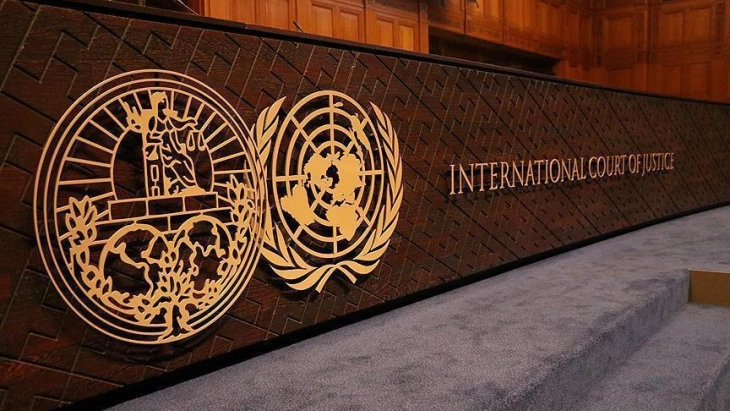UN court tells Israel to avoid genocide but does not order end to war
- The International Court of Justice (ICJ) has recognized a risk of genocide in the Gaza Strip, but in a ruling on Friday did not oblige Israel to end its military operation there.
- Post By Angel Dimoski
- 16:10, 26 January, 2024

The Hague, 26 January 2024 (dpa/MIA) - The International Court of Justice (ICJ) has recognized a risk of genocide in the Gaza Strip, but in a ruling on Friday did not oblige Israel to end its military operation there.
In a preliminary decision in the genocide proceedings brought to The Hague by South Africa, the highest court of the United Nations voted 15 judges to 2 on its main conclusion.
"The State of Israel shall, in accordance with its obligations under the Convention on the Prevention and Punishment of the Crime of Genocide, in relation to Palestinians in Gaza, take all measures within its power to prevent the commission of all acts within the scope of Article II of this Convention," the judges said.
The Palestinians viewed the ruling as a clear signal that the judges see a danger that the UN Genocide Convention could be violated.
"The ICJ judges assessed the facts and the law. They ruled in favour of humanity and international law," Palestinian Foreign Minister Riyad al-Maliki said in a statement.
Israel has rejected South Africa's accusations as "outrageous" and invoked the right to self-defence following the devastating massacre by Hamas militants and other Palestinians extremist groups on October 7.
"Israel's commitment to international law is unwavering," Israeli Prime Minister Netanyahu said in a statement.
"The charge of genocide levelled against Israel is not only false, it’s outrageous - Israel will continue to defend itself against Hamas, a genocidal terror organization. Our war is against Hamas terrorists, not against Palestinian civilians."
Over 1,200 people were killed inside Israel on October 7 and the Hamas-controlled health authority in Gaza says over 26,000 Palestinians have died in the subsequent conflict.
Around 75% of victims were women, children or elderly men, according to the authority, but it is impossible to verify the claims.
The judges only partially granted an urgent appeal by South Africa, which had demanded an immediate cessation of military action. However, Israel must now take protective measures and also allow humanitarian aid.
South Africa's foreign ministry said in a strongly-worded statement: "Today marks a decisive victory for the international rule of law and a significant milestone in the search for justice for the Palestinian people.
"In a landmark ruling, the International Court of Justice (ICJ) has determined that Israel’s actions in Gaza are plausibly genocidal and has indicated provisional measures on that basis. For the implementation of the international rule of law, the decision is a momentous one. South Africa thanks the Court for its swift ruling."
South Africa will now await decisions of the United Nations Security Council, which will be formally notified by the court of the initial verdict.
"The veto power wielded by individual states cannot be permitted to thwart international justice, not least in light of the ever-worsening situation in Gaza brought about by Israel’s acts and omissions in violation of the Genocide Convention," the statement from Pretoria added.
The United States, a permanent Security Council member, is Israel's biggest ally but even the Biden administration has warned Israeli Netanyahu to try to avoid civilian casualties.
The court ruled that Israel has to do everything in its power to prevent and punish incitement to genocide.
Turkish President Recep Tayyip Erdoğan, a big critic of Israel's war, wrote on social media platform X: "We will continue to follow the process to ensure that the war crimes committed against innocent Palestinian civilians do not go unpunished."
Iranian Foreign Minister Hussein Amirabdollahian welcomed the ICJ's finding that there is a risk of genocide in the Gaza Strip. He congratulated South Africa and the Palestinian people on the "success."
South Africa filed the lawsuit against Israel at the end of December and both parties were given a day to present their evidence.
The court has not yet made a final decision on the main accusation of genocide. It is not known when the trial on the main accusation will begin and such proceedings can drag on for years.
Pretoria brought the case because it felt Israel's war in Gaza had echoes of the former apartheid regime in South Africa.
Decisions of the UN court are binding, but the judges have no means of enforcing them. It is unclear whether Israel will abide by the rulings.
Photo: MIA Archive







